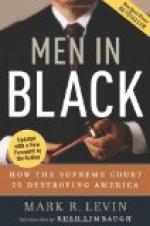That so many escape is one of the wonders of human nature. That they retain their humanity is due to a disposition of Providence to temper the wind to the shorn lamb. The position necessarily takes away all initiative. In politics the judge is recognized as being a “dead one.” After a few years on the bench only the exceptional man can fling off the shackles of his profession and get back into real life. He ceases from fighting, he is not energetic.
As a good judge he must be firm but restrained. He may not be too emphatic. Every inducement is toward making him lazy, fat, and easy. Before him everyone bows and waits for him to speak. He is the absolute boss within the four walls of his court-room. The only restraining influences are the reactions from the lawyers and spectators who are before him. Their opinions can not be openly expressed; they are reserved until afterwards. If a judge really has any idea of the high esteem in which he is held, let him find out what is being said of him after the case is over, as the clients and lawyers are going down in the elevator, or what the rear benches have been whispering.
He probably has a suspicion of this, but no matter how tolerant he desires to be, there is the temptation to show that his authority is supreme; that when the lawyers begin arguing a point on which he has formed an opinion to cut them off; when the witness is trembling on the stand as to whether the accident happened on a Thursday or a Friday, to ask her, “Don’t you know that Thursday was on the 16th of April last year,” which of course she does not. There is the temptation to feel that he can never be wrong; that a question may be reargued, but that he is not going to change his opinion.
The possibility is that the judge is a mild sort of bully. But it is not always safe to go on the assumption that being a bully he is also a coward. He may be, but on a trial the odds are too much in his favor. If the lawyer wants to fight the judge, he has a great deal at stake; he may awaken so strong a prejudice that the judge knowing the rules of the game better than he does, may beat him on a technicality. On the other hand it is a mistake for the lawyer to be subservient and too cringing. Being a bully, the judge is apt to take advantage of his position. The best policy is to appeal to his human instincts as a man. He may be decent in spite of critics of the courts to the contrary notwithstanding. If he is kindly treated he will respond.
In New York judges were appointed until about 1846, when there was a popular upheaval and the constitution was changed, and they have ever since been elective, with the exception of some of the minor courts. The advantages of the two methods is an open question. The arguments in favor of appointment are that it makes for an independent judiciary and that it secures better men for the bench, whereas the other does not, because the highest class lawyer will not go through the turmoil and supposed degradation of a political campaign. These arguments are not sound.




